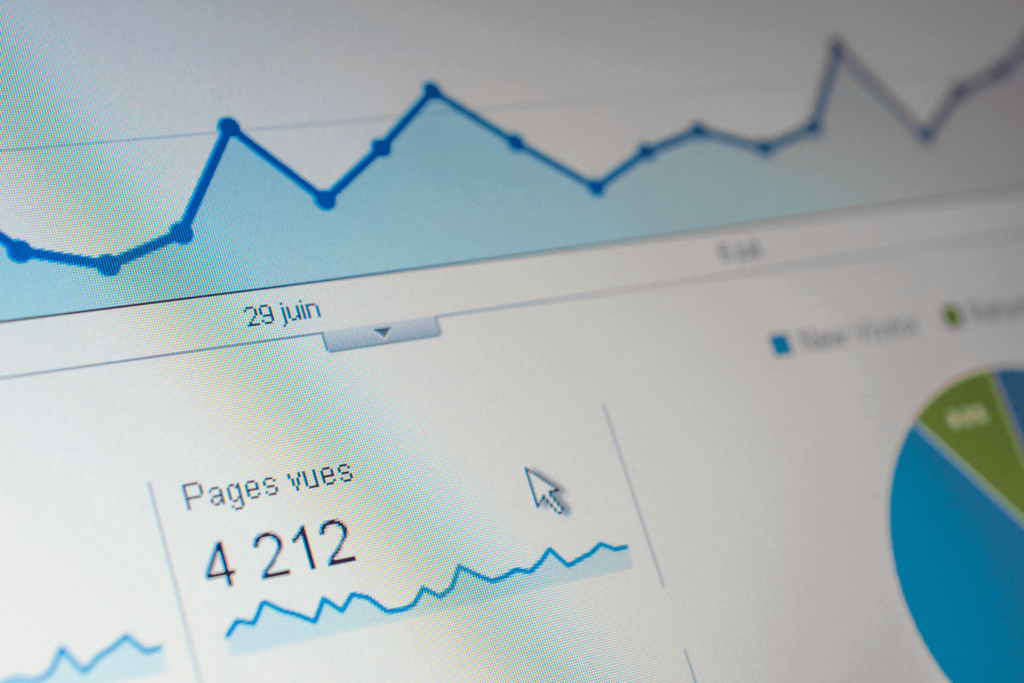You might have heard some buzz about Google Analytics in the past few months. The good news is that all of your data will still be there. The downside —and this depends on how you currently use your data—is that you may need to make some changes to your website. In this post, we’ll answer a few common questions about Google Analytics 4 (GA4).
What is GA4?
GA4 is the new version of Google Analytics and was announced by Google in October 2020. It allows you to track any traffic and engagement that happens across your website and apps.
GA4 will be replacing the former type of Universal Analytics. It was developed to better focus on customer privacy due to the recent implementation of privacy laws such as GDPR. It allows privacy-first tracking, AI-driven predictive analytics, and cross-channel data measurement.
What is the difference between GA4 and UA?
GA4 is not just a redesign of UA; it was completely rebuilt from scratch. Here are some more specific when looking at Google Analytics 4 vs. Universal Analytics:
- GA4 supports full cross-device and cross-platform reporting, allowing you to track how all users interact with your app or your website. This provides a clearer picture of the marketing impact.
- GA4 tracks events, not sessions or page views. This also means you can define which “events” are most important to your business.
- GA4 integrates much more closely with Google Ads, this allows you to see the full customer cycle, from how users interact with your digital marketing to how they finally complete the goals you’ve set for them on your site
- GA4 leverages automation and AI to provide predictive analytics, rather than just reporting events that have already occurred. Businesses can use this for forecasting, finding new audiences, and more.
Will I still be able to use Universal Analytics (UA)?
Universal Analytics (UA) will still be supported until July 1, 2023. For the first six months after this date, you can continue to use UA. With this in mind, Google still advises businesses to set up GA4 ASAP and export any historical data ready for the switch.
What is this going to mean for my business?
If you’re not already using GA4, then the short answer is that you need to change over.
It is very common for businesses to utilise their analytics data in order to streamline their processes and make sure that their website is performing to the highest standards. In order to build up a good base of data for future comparison, it is recommended that you set up GA4 sooner rather than later. This can then run in parallel with UA until needing to switch fully.
How do I make the change?
If you’re making the change to GA4, it’s important that your data is ready. You can migrate your data in one of two ways: manually or through automated migration tools.
- Manual migration: If you aren’t using any automated tools and are simply updating your own data, this method is the best way to go. It allows you to make edits directly in Google Analytics and update your account accordingly.
- Automated migration: If you have a lot of data (or don’t want to work with it yourself), there are several third-party tools available for use that will make this process much easier on both sides of things—you’ll be able to save time as well as lessen some stress from having so much on your plate at once!
- Let us do it for you!: If you would rather that the switch to GA4 was handled by us then please get in touch and we would be more than happy to discuss this with you.

What if I don’t want to change?
Nothing will change in the near future. You just won’t have Google Analytics 4 property and your existing Google Analytics will continue to work. However, we highly recommend that you upgrade to Google Analytics 4. GA4 provides a much better data model than the current version of Google Analytics.
You don’t have to use GA4 for your reporting and analysis right away but it will give you an option to try it out and get ready for 2023.
We understand that this might be a stressful time, but we are here to help!
The news of a change like this can be a stressful time for businesses, but we are here to help! The migration will not be difficult, and we’ll be here with you every step of the way.
We can help you set up your new GA4 account and make sure everything runs smoothly. We’ll walk you through the steps of migrating from UA to GA4 so that everything goes as smoothly as possible.
Conclusion
We know that Google Analytics is a tool that you use to make your business successful, and we want to help you through this transition so that you can focus on what’s important: growing your business. We hope this article has helped answer some of your questions about GA4 and how it will affect your business. If not, don’t hesitate to get in touch!

